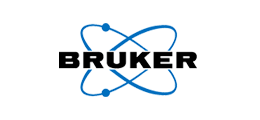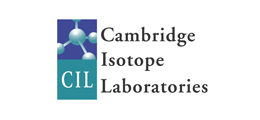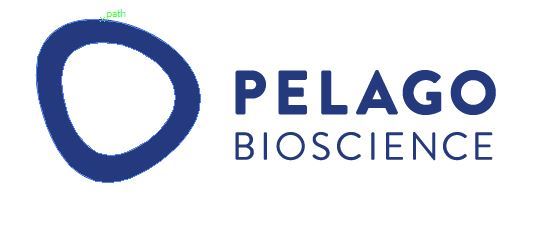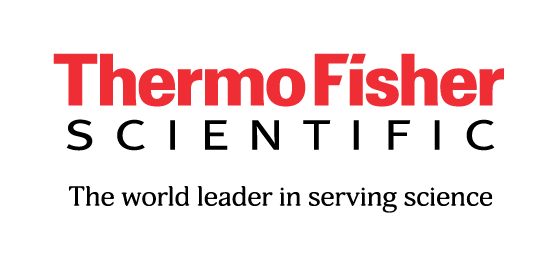|
HUPO Awards - 2025 recipients |
We are pleased to announce the winners of the HUPO Awards.These awards are presented annually at the world congress and recognize the outstanding efforts and achievements of individuals or groups in the field of proteomics. We gratefully acknowledge the support of Journal of Proteome Research (ACS Publications) and the HUPO Industrial Advisory Board (IAB) as sponsors of the 2025 awards.
DISTINGUISHED SERVICE AWARD The Distinguished Service Award recognizes an exemplary member of the proteomic research community whose dedicated service has made indispensable contributions to the organization and mission of HUPO. Note: This award is presented biannually (2025, 2027, 2029, etc) Mathieu Lavallée-Adam,University of Ottawa, Canada and Ruth Huettenhain, Stanford Medicine, USA
DISTINGUISHED ACHIEVEMENT IN PROTEOMIC SCIENCES AWARD The Distinguished Achievement in Proteomic Sciences Award recognizes a scientist for distinguished scientific achievements in the field of proteomic science. Sponsored By: Journal of Proteome Research (ACS Publications)Yu-Ju Chen,Academia Sinica, Taiwan  Dr. Yu-Ju Chen is a trailblazer in proteomics whose transformative innovations have reshaped both Dr. Yu-Ju Chen is a trailblazer in proteomics whose transformative innovations have reshaped bothbiological discovery and clinical translation. She brings novel chemistry (functional nanomaterial and microfluidics) into proteomics to pioneer ultra-sensitive mass spectrometry for membrane proteome and PTMomics, enabling nanoscale-to-single-cell proteomic analysis, such as the first single-cell phosphoproteomics landscape that offers critical insights into cancer heterogeneity and treatment resistance. Dr. Chen also invented nanoprobe-based affinity mass spectrometry, leading to the discovery of serum protein variant barcodes as novel biomarkers for non-invasive early cancer detection. Most notably, she founded Taiwan Cancer Moonshot Program and led the first proteogenomic study of non-smoking lung cancer, identifying distinct pathogenesis mechanisms and a high-risk “late-like” subtype, now informing treatment decisions (Cell, Cancer Cell). Her team also constructed "Taiwan Cancer Multi-Omics Precision Medicine Knowledgebase" as a publicly accessible resource. Her pioneering technologies and discoveries have reshaped global understanding of cancer biology and accelerated precision medicine.
The Discovery in Proteomic Sciences Award recognizes a scientist for a single discovery in the field of proteomics. Bernd Wollscheid, ETH Zürich, Department of Health Sciences and Technology, Insitute of Translational Medicine, Switzerland
CLINICAL AND TRANSLATIONAL PROTEOMICS AWARD The Clinical and Translational Proteomics Award recognizes a scientist in the field of clinical and translational proteomics. Junmin Peng, St. Jude Children's Research Hospital, USA  Dr. Junmin Peng is a recognized leader in mass spectrometry-based proteomics, with a longstanding focus on Alzheimer’s disease (AD). He performed the first spatial proteomics analysis of AD plaques (JBC 2004) and pioneered deep proteomic profiling of AD brain (14,513 proteins), CSF (5,940), and blood (4,826) (Clin Proteomics 2019; Neuron 2020), now extended to over 2,100 human samples (under review in Cell). His work spans the whole proteome, aggregated proteome, PTMs, and protein turnover (Cell 2025). These studies uncovered 17 altered pathways, identified CSF/blood biomarkers (Mol Neurodegener 2020), and proposed novel therapeutic strategies. Dr. Peng has published 260 peer-reviewed papers (h-index >100, 41,000 citations). He has trained over 100 scientists, including 15 who became faculty members (e.g., Dr. Nick Seyfried, Emory; Dr. Chan-hyun Na, Johns Hopkins). His work has shaped our understanding of AD pathogenesis and contributed significantly to the advancement of proteomics and AD precision medicine. Dr. Junmin Peng is a recognized leader in mass spectrometry-based proteomics, with a longstanding focus on Alzheimer’s disease (AD). He performed the first spatial proteomics analysis of AD plaques (JBC 2004) and pioneered deep proteomic profiling of AD brain (14,513 proteins), CSF (5,940), and blood (4,826) (Clin Proteomics 2019; Neuron 2020), now extended to over 2,100 human samples (under review in Cell). His work spans the whole proteome, aggregated proteome, PTMs, and protein turnover (Cell 2025). These studies uncovered 17 altered pathways, identified CSF/blood biomarkers (Mol Neurodegener 2020), and proposed novel therapeutic strategies. Dr. Peng has published 260 peer-reviewed papers (h-index >100, 41,000 citations). He has trained over 100 scientists, including 15 who became faculty members (e.g., Dr. Nick Seyfried, Emory; Dr. Chan-hyun Na, Johns Hopkins). His work has shaped our understanding of AD pathogenesis and contributed significantly to the advancement of proteomics and AD precision medicine.SCIENCE AND TECHNOLOGY AWARD Recognizes an individual or a team in private industry for the commercialization or (not necessarily) the invention of products, technologies or procedures which had the demonstrated effect in enabling proteome researchers to advance their science. Sponsored By: HUPO Industrial Advisory Board (IAB) Joel Braunstein and team at C2N Diagnostics
According to the World Health Organization,~55M people live with Alzheimer’s disease (AD) or other dementias, with 10M new cases annually. Millions more are at risk due to genetics, environment, comorbidities, and age. This creates a need for scalable, affordable, and accurate blood tests for diagnosis, risk assessment, and treatment monitoring, especially in presymptomatic stages. C2N Diagnostics, a spin-out from Bateman and Holtzman labs at Washington University School of Medicine, has stablished a high-performance blood biomarkers test to aid in the early diagnosis of AD. They introduced the PrecivityAD® test, the first analytically and clinically validated blood biomarker test and the PrecivityAD2™ test in 2023, for use in clinical care within the United States. which combines Aβ42/40 and %p-tau217 for superior diagnostic performance. In 2024, they launched a method to measure Tau-MTBR, aiding in staging amyloid and tau pathology. Their markers are widely used in clinical research, with the PrecivityAD2. RISING STAR AWARD This career achievement award is designed to recognize early career researchers who have had an exceptional impact on the proteomics field and community. This impact can take the shape of publications, patents obtained, development of a commercial product, establishment of a course, training program, workshop or any other contributions or service to the field of proteomics. Organized By: HUPO Early Career Researcher (ECR) Committee Michael Skinnider, Princeton University, USA
|


 Dr. Wollscheid is an internationally recognized leader in cell surface-directed chemoproteomics.
Dr. Wollscheid is an internationally recognized leader in cell surface-directed chemoproteomics.

 Michael’s doctoral work in the laboratory significantly advanced the field of interaction proteomics, through his work on co-fractionation mass spectrometry (CF-MS). Perhaps most notably, he spearheaded the first in vivo maps of the mammalian protein interaction network within living tissues (Cell 2021). Separately, he re-analyzed essentially every CF-MS experiment that had ever been done (>21,000 proteomic runs) to establish both experimental and computational best practices for CF-MS (Nature Methods 2021), and assemble the highest-quality map of the human protein interaction network in existence (Nature Communications 2023). This is in addition to his contributions in mapping context-specific rewiring of the human interactome in response to inflammatory stimuli (Genome Biology 2020) and in developing software for proteomic analysis (Bioinformatics 2021, PLoS Computational Biology 2018).
Michael’s doctoral work in the laboratory significantly advanced the field of interaction proteomics, through his work on co-fractionation mass spectrometry (CF-MS). Perhaps most notably, he spearheaded the first in vivo maps of the mammalian protein interaction network within living tissues (Cell 2021). Separately, he re-analyzed essentially every CF-MS experiment that had ever been done (>21,000 proteomic runs) to establish both experimental and computational best practices for CF-MS (Nature Methods 2021), and assemble the highest-quality map of the human protein interaction network in existence (Nature Communications 2023). This is in addition to his contributions in mapping context-specific rewiring of the human interactome in response to inflammatory stimuli (Genome Biology 2020) and in developing software for proteomic analysis (Bioinformatics 2021, PLoS Computational Biology 2018).
.png)
















